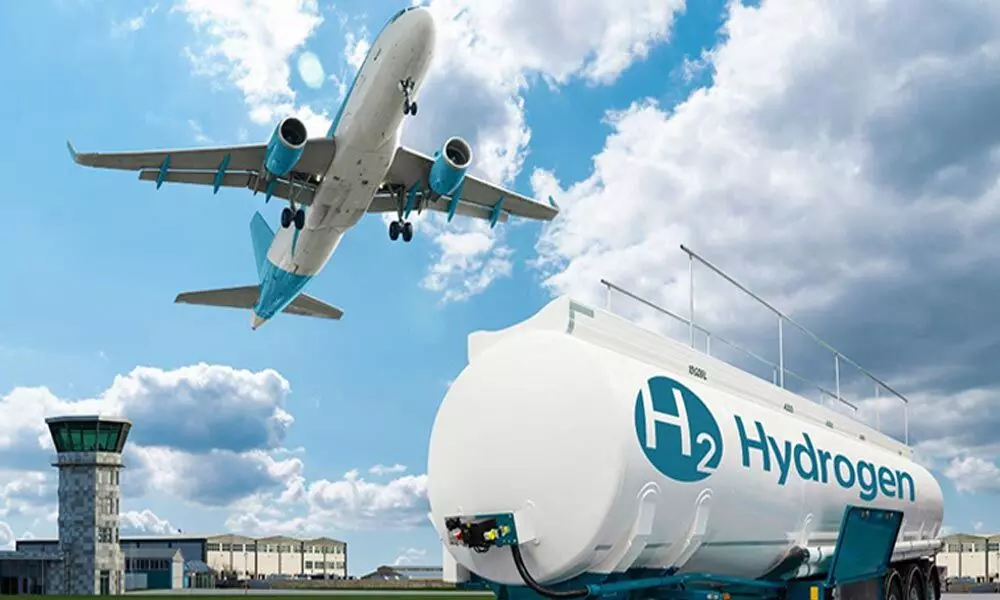How airlines are paving the way towards sustainability
Despite Covid crisis, many airlines and airports have put investment in sustainability on top of their agendas
image for illustrative purpose

Some airlines in the US have already taken action to reduce emissions. Early in 2020, Delta Air Lines announced that it is committing $1 billion over the next 10 years to mitigate all emissions from its global business going forward. Meanwhile in Europe, the pressure is on for some airlines that have had to agree to environmental terms in order to receive bailout from their respective governments
Airlines and airports are aiming towards a more sustainable recovery post-Covid-19. The Covid-19 crisis has had a detrimental impact on the air transport industry, but it is also offering an opportunity for airlines and airports to rethink their strategies and restart operations in a way that shapes a greener and more resilient future.
Despite the crisis, many airlines and airports have put investment in sustainability on top of their agendas. So, let's take a look at some of the recent initiatives that the industry has undertaken to drive these efforts:
The sustainability of the air transport
The air transport sector continues to be characterized by increasing growth, with the demand for air transport services greatly expanding over the last few decades. Despite being a flourishing industry, air transport is highly exposed to external events (e.g., terroristic attacks, financial crisis, natural hazards) which can undermine industry performance. It is clear that in the highly vulnerable and competitive global airline market, productivity is a key factor for success.
Economic sustainability, hence productivity, has therefore traditionally been the main goal of the industry in the past. However, increasingly, policy makers are looking beyond traditional measures of airline performance and placing an increasing emphasis on the environmental sustainability of air transport. Indeed, in parallel with the increase of flights and services, the air transport industry is a well-recognized source of greenhouse gases emissions, especially carbon dioxide. In the next 20 years, ICAO forecasts a doubling of CO2 emissions from air transport. A sustainable industry should aim to balance the economic and environmental aspects of the business, seeking to develop mutually beneficial policies and practices that are both economically sound and environmentally and socially responsible.
How airlines are paving the way towards sustainability
The global airline industry is under an extreme financial pressure with the International Air Transport Association (IATA) forecasting a total net loss of $118.5 billion for 2020. Covid-19 relief packages have been a vital lifeline for airlines around the world with government financial aid to airlines totalling $123 billion worldwide.
While this could have been a real opportunity for governments around the world to enforce environmental terms as part of their bailout conditions, only a few set the terms in favour of the environment.
Nevertheless, some airlines in the US have already taken action to reduce emissions. Early in 2020, Delta Air Lines announced that it is committing $1 billion over the next 10 years to mitigate all emissions from its global business going forward. Meanwhile in Europe, the pressure is on for some airlines that have had to agree to environmental terms in order to receive bailout from their respective governments.
Air France, for instance, received a €7 billion grant from the French government, which highlighted clear environmental conditions to the state aid with the objective of making Air France "the most environmentally friendly airline" in the world.
As part of its Horizon 2030 plan, Air France had already outlined its aim to halve CO2 emissions per passenger/km by 2030, and it is also committed to modernising its short-, medium- and long-haul fleet by ordering 60 Airbus A220-300s, gradually replacing Air France's A319 and A319 fleet; taking delivery of 28 Airbus A350-900s, the first of which have already joined the carrier's fleet; and retiring its Airbus A380 by 2022.
Similarly, KLM also received restrictions from the Dutch government, which supported the carrier with a €3.4 billion bailout package. While the financial aid has since been put on hold, it initially outlined that KLM needs to reduce evening flights, encourage rail journeys, as well as reduce emissions per passenger by half by 2030.
Austrian Airlines is another carrier that received a substantial bailout package of €600 million with specified requirements around sustainability, such as shifting passenger traffic to rail on short-haul flights; cutting domestic CO2 emissions in half by 2030; reducing total CO2 emissions by 30 per cent by 2030; and improving fuel efficiency by 1.5 per cent per year to achieve an average carbon footprint per 100 passenger kilometre of 8.5kg by 2030 compared to a current footprint of 9.55kg.
Austrian Airlines' parent company Lufthansa, however, received a €9 billion bailout from the German government, without climate strings attached. On the ground, airports are also using the Covid-19 downtime to trial new sustainable operations. Recently, Amsterdam Airport Schiphol started a trial of an autonomous baggage tractor that will take baggage to the aircraft on the apron. The trial forms part of a new programme launched by Royal Schiphol Group, called Autonomous Airside Operations, in support of its vision to operate "the most sustainable airports in the world" by 2050.

